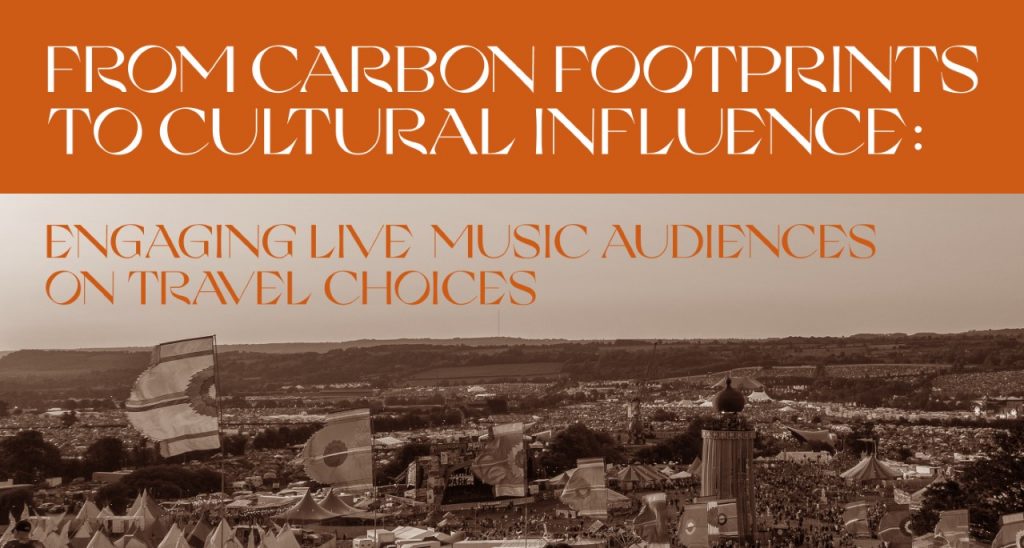
Words by Briony Latter
Audience travel is one of the biggest contributors to the carbon emissions of live music events. Along with Adam Corner and Chiara Badiali, we launched a project to provide the live music industry with recommendations for how to positively influence the travel choices of their audiences.
Our report – From carbon footprints to cultural influence: engaging live music audiences on travel choices – was published in November 2022 and is designed as a practical resource for people working on live music and sustainability. This was based on roundtable discussions with specialists from across the music industry, a small survey of audience members at Shambala festival, and grounded in research on public engagement with climate change.
In the report, we highlight five different ways that events can positively influence audience travel choices.
Audiences as agents of change: There are structural barriers that prevent audiences making more sustainable choices, and a mix of experiences from live events trying to overcome these. However, festivals and live music events have an opportunity to ask their audiences to create change with them, such as calling for greater policy support or bringing about partnerships with local authorities or transport providers.
Collective efficacy and agency: Live music events can also focus on solutions and collective action (what ‘we’ can do). For example, inviting audiences to be part of positive collective change rather than framing it as sacrifices or inconveniences made by individuals. We also suggest using creative ways to visualise and communicate collective impact at scale.
Human stories: Showcasing human stories that ‘show the change’, including examples of real audience members modelling positive choices, can help to move away from a sole focus on facts and figures. This also links into a consideration of the shared values that events have with their audiences, and making sure communications are grounded in this.
Fairness and feasibility: Fairness is a crucial part of climate change engagement. The concept of fairness means different things to different people and not everyone will be able to change their behaviours, so having an understanding of the varying audiences who attend live music events is key. Sustainable travel policies and campaigns must also be inclusive, safe and accessible – for example, co-developing them with the most impacted groups.
Legacy impacts: There is an opportunity for live music events to look outwards at ways to use their cultural footprint to create wider change, as well as focusing on their own carbon footprint. Events with a clear sense of identity and loyal audiences have the cultural credibility to encourage them to make wider change in their travel choices, not just around live music.
Shambala recently released their Impact Report for the 2022 festival, which showed that audience travel made up a huge 92.4% of the total carbon emissions. This example highlights the difficulty of addressing audience travel, given that it was identified as one of the major indirect sources of emissions from the UK music industry over a decade ago. Within CAST, transport and mobility is also recognised as an area which is hard to address – it is one of the centre’s four challenging areas of research.
Our report offers a new perspective for live music events to explore audience engagement around sustainable travel, with the potential for mobilising their ‘cultural footprint’ more widely as well as influencing travel choices in and around events.
Contact Adam Corner or Briony Latter for further information or if you would like to work with us on developing this project further.
